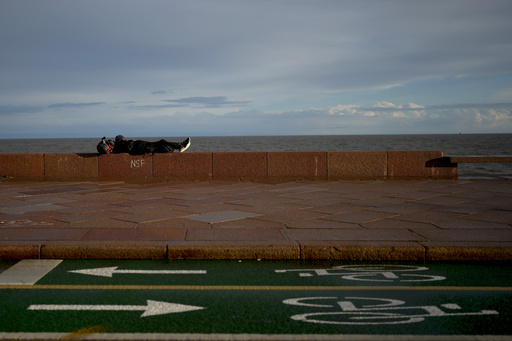
With a population of approximately 3.4 million, the outcome of this election isn’t expected to initiate significant changes, as Uruguay has long been praised as a stable democracy in a turbulent region. The major political parties generally find common ground on various issues, making this election campaign focused more on pressing concerns such as child poverty and security. Rising rates of homicide and robbery are among the most pressing worries for voters, despite Uruguay being one of the safer countries in the area, according to public opinion polls.
Political analyst Juan Cruz Díaz from the Cefeidas consultancy group noted, “Uruguay has been more monotonous in a positive sense compared to other countries. The drama seen in Argentina, Brazil, Ecuador, and Colombia contrasts sharply with the consensus and stability observed in Uruguay.” While voters in neighboring nations express dissatisfaction with the status quo, Uruguayan citizens generally support the current government’s friendly business stance and steady economic growth. Luis Lacalle Pou, the center-right president, boasts an approval rating of 50%.
Due to constitutional term limits, Lacalle Pou is unable to seek another consecutive term, paving the way for Álvaro Delgado, a 55-year-old congressman and the president’s former chief of staff, who started his career as a veterinarian. Delgado expressed at his final rally, “This government leaves us a solid foundation to build upon for the future.”
His primary opponent is 57-year-old Yamandú Orsi, a center-left candidate with strong ties to Frente Amplio (Broad Front), which previously governed from 2005-2020. Orsi, a history teacher and former mayor, has roots in the community and projects a relatable persona through his campaign advertisements, featuring him engaged in everyday activities such as drinking mate and walking his dog.
During its governance, the Frente Amplio implemented progressive policies, including the legalization of same-sex marriage and cannabis for recreational use, while promoting renewable energy initiatives that provide about 98% of the country’s power. Recent polling indicates Orsi holds a comfortable lead at 44%, but may not secure a victory outright, potentially leading to a runoff election scheduled for November 24.
Orsi has gained traction from endorsements by the highly regarded former President José “Pepe” Mujica, who played a crucial role in steering Uruguay toward a more liberal social landscape during his presidency. At 89 and battling esophageal cancer, Mujica remains a symbolic figure in Uruguayan politics. Similar to Mujica, Orsi has expressed a preference for not residing in the presidential palace if he were to be elected.
In a less prominent position, Andrés Ojeda, a 40-year-old lawyer with a dynamic public presence, attempts to engage disengaged young voters with vibrant campaign visuals that showcase his workouts at the gym. “I aim to be the candidate who captivates and inspires people,” he stated during a recent event. He acknowledged drawing inspiration from charismatic leaders in Latin America who effectively utilize social media to grow their following, though he aligns with the ruling coalition and commits to maintaining the status quo.
Voters will also cast their ballots for a new vice president and congressional representatives. Another significant aspect of this election is a constitutional referendum addressing a comprehensive overhaul of Uruguay’s social security system. If the proposed $23 billion initiative garners over 50% support from voters, it would lower the retirement age, increase benefits, and shift privately managed pension funds into a government-administered trust. Both leading presidential candidates have publicly opposed this initiative, which has already stirred concern in global financial markets. Advocates of the reform, however, argue it would lead to a fairer distribution of the nation’s resources.
Additionally, voters will vote on allowing nighttime police raids in homes. While public participation in the referendums is voluntary, voting for the congressional and presidential elections is mandatory. Approximately 2.7 million citizens are eligible to vote in a country where voter turnout exceeded 90% during the 2019 elections, one of the highest rates globally.
